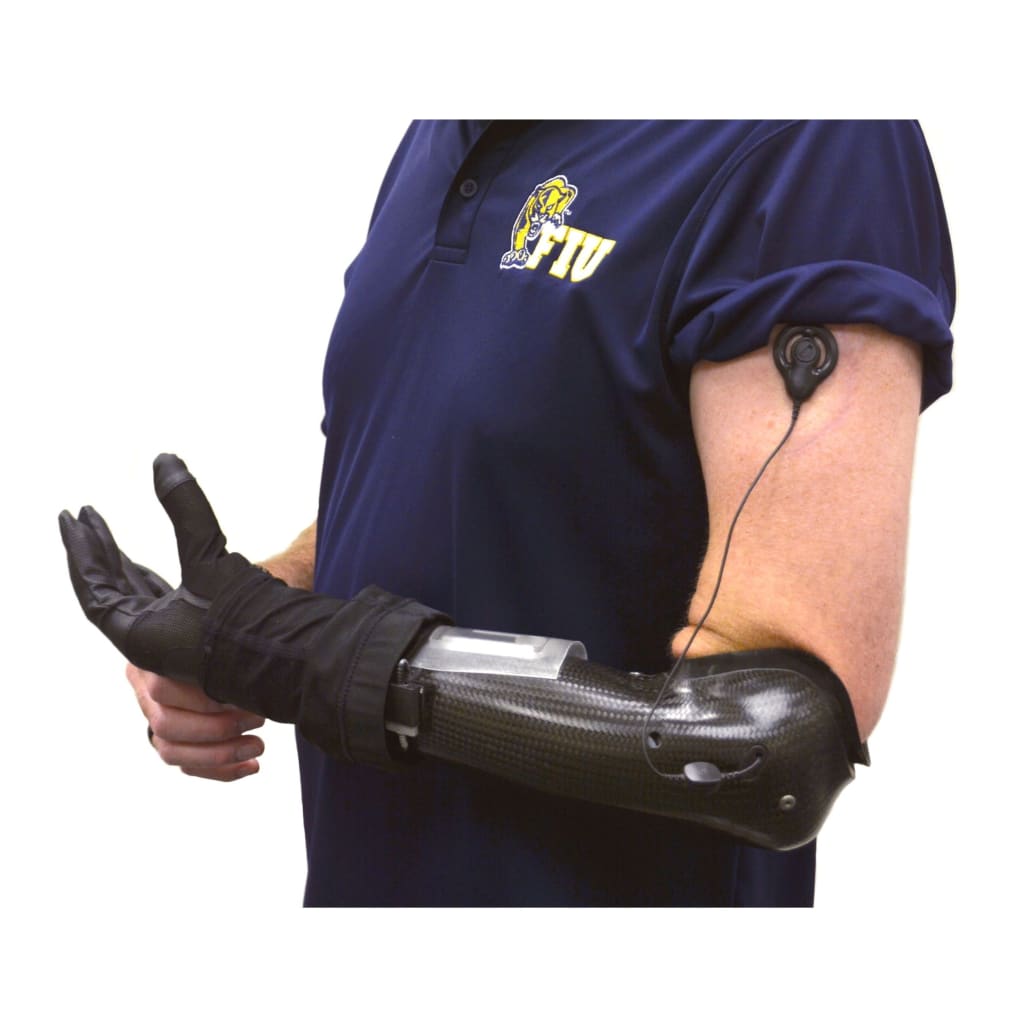The Department of Defense (DOD) has awarded $6 million to FIU biomedical engineering professor Ranu Jung and her team to expand testing of their pioneering prosthetic hand system – which allows amputees to “feel” again – to military veterans and other amputees.
The neural-enabled prosthetic hand (NEPH) system, which Jung developed at FIU with her Adaptive Neural Systems Laboratory team, restores a sense of touch/grasp force and hand opening by stimulating sensory nerve fibers in the residual limb with fine wires implanted inside nerves. As muscle activity controls the motors in the prosthetic hand, sensors in the prosthetic hand provide information that commands an implanted neurostimulator to deliver stimulation pulses to the sensory nerve fibers. The elicited sensations can improve control of the prosthesis.
“Although advances in prosthetics have allowed U.S. veterans and service members to live more comfortable lives, many are still dissatisfied with their prostheses and stop using them,” said Ranu Jung, chair of the Department of Biomedical Engineering within the College of Engineering & Computing and a Wallace H. Coulter Eminent Scholars Chair in biomedical engineering. “We developed the NEPH system to improve the quality of life of people with upper-limb amputation, many of whom served in the military. We hope this technology, that is designed to provide senses of touch and grasp force, will allow them to perform daily tasks and, perhaps one day, even activities related to military duty.” Read more at FIU News.

